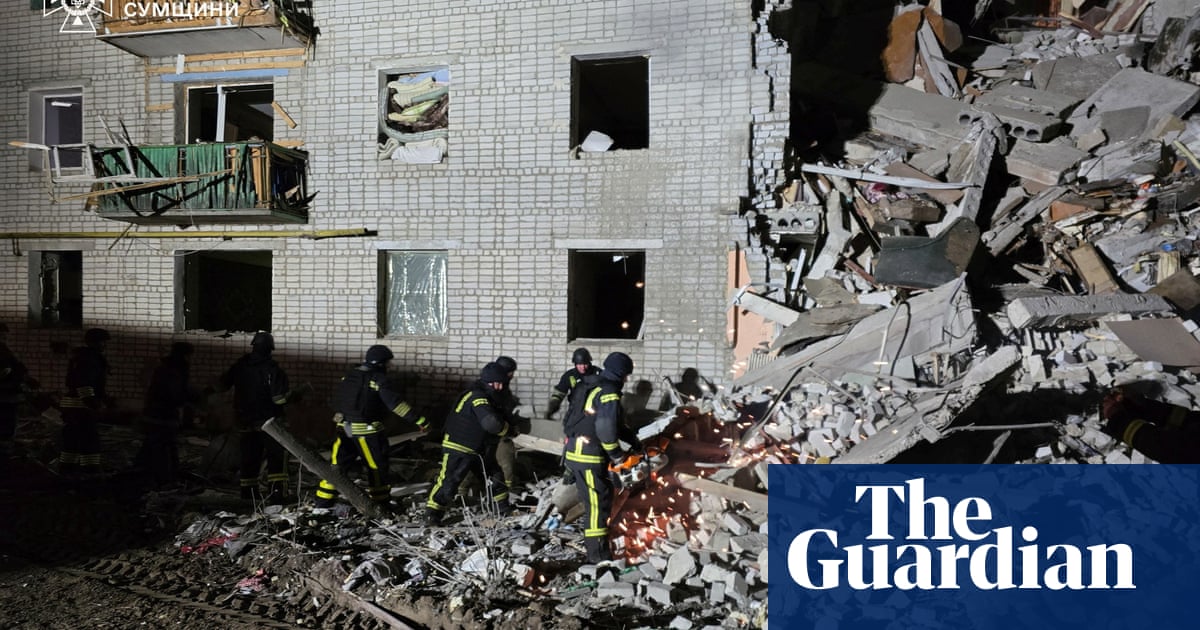Documentaries about the phenomenon of Donald Trump are often overcome by the sheer horror of the man, what he has done and – especially among those broadcast in the runup to the 2024 US election – what he may be planning to do in the future. Sometimes, however, they sidestep this trap and treat the subject itself with the sober consideration that it, rather than the man, deserves.
Into the latter category falls Trump: A Second Chance? which, like all the best documentaries, ploughs the harder furrow. Here, Maga supporters are not treated as one undifferentiated “basket of deplorables” but interviewed – at length, in the case of Trump superfan Rich Frazier – as individuals representing separate strands of Trump’s base. Frazier was a Democrat-voting blue-collar worker at his local Goodyear factory. It once employed 2,700 people. Now it has 500. He is part of the huge swathe of citizens who have in effect been cut out of the American dream of self- and family-betterment as jobs have disappeared abroad; they feel alienated from a political system that has long seemed to ignore them and were ripe for the picking by a man who promised to do everything differently. Now Frazier travels the country as a Front Row Joe – one of the devoted fans, of whom we meet several, who sit up close to Trump at every rally and cheer their hero on. “I want control of my life,” says Frazier, and there is not anger but desperation in his tone.
At the same time, Trump’s base also very much includes Gavin McInnes, founder of the Proud Boys, the group thought to be instrumental in the violence on Capitol Hill on 6 January and far more enmeshed with far-right ideology. McInnes sets out his stall pretty clearly in the film: “We want to make America hate again.” And, he says, it wasn’t him or his group responsible for what happened on 6 January: “It was you. If anyone should apologise … it should be the corrupt leftwing media, and I’ll accept your apology now if you want to do it.”
Around such figures as McInnes, Frazier and his friends (plus a farmer, Chris Gibbs, who has made a counter-journey, from active Republican to Democrat when he declined to accept the cultish transformation of his party under Trump) are commentators from both sides of the divide and something at least approaching neither (true neutrality is essentially impossible at this point). There is John Bolton, Trump’s US national security adviser from 2018 to 2019, who still looks shellshocked by his brief tenure; Mark Lotter, Trump’s director of strategic communications for the 2020 campaign, who is still on-message; and many cultural commentators whose keenness to analyse rather than condemn or concentrate on the plentiful shocks delivered since 2016 is greater than we are used to.
“The Maga movement starts from the premise that there is some perfect place for this country to be and that we’ve been there in the past,” says Heather Richardson, a Boston College professor of history. A strong leader, she and others point out, can promise to return it to that. “Ask why they like him and they’ll say he doesn’t sound like a politician,” says Steven Fish, a political science professor at Berkeley. “And they’re right … He feels like Honest Donald, and the Democrats have ignored this for many years.”
All of which is not to say that Trump’s nature, dependence on provocative techniques or multiple acts of criminality (and convictions thereof) are overlooked. They are laid out unsparingly, along with the existential and practical threat his re-election would pose to democracy. A recent decision from the supreme court – stuffed to the gills with Trump appointments – conferred immunity from criminal prosecution on presidents for actions taken during their presidencies. This leaves the way open for Trump in his second term to order the current charges against him dismissed. (He has three more criminal trials pending, including possible charges of trying to overturn the 2020 election.) And after that, of course, he has the freedom to pursue any policies he likes without legal repercussions – policies that, his speeches suggest, could include mass roundups and deportations of anyone considered in his terms to be an illegal immigrant.
In short, the actual and potential hellscape is well-drawn. But Trump: A Second Chance? has ploughed its furrow well, taking time and care to unpick how we got here and why. There are always more – and often better – reasons behind a tyrant’s rise than that, and it often includes complacency, snobbery and self-righteousness reaching toxic levels on the other side that allows someone promising to be “your voice … your warrior, your justice … your retribution” sound like the answer to a long-unheard prayer. It is something Kamala Harris’s campaign shows some signs of appreciating – whether that is too little, too late or just enough, just in time, we’ll soon find out.
after newsletter promotion

.png) 2 months ago
22
2 months ago
22













































